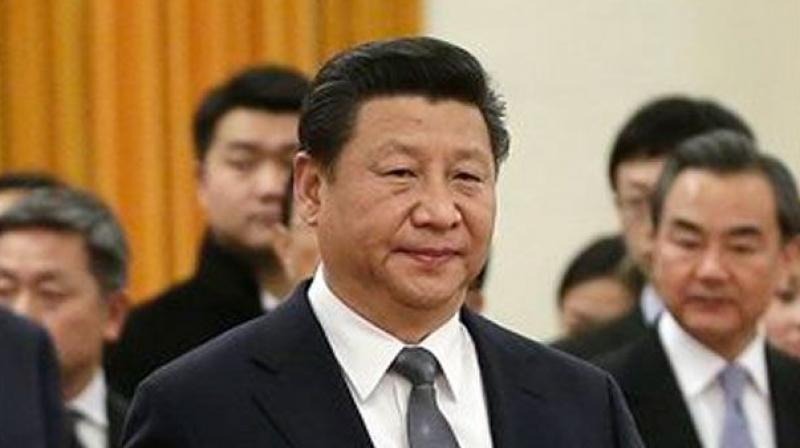Xi heralds new era of Chinese supremacy

When the weeklong 19th Congress of the Communist Party of China concludes early next week, President Xi Jinping would probably have emerged as the aggressively rising Communist country’s most important leader since Chairman Mao. That’s the indication so far and that’s what may be surmised without difficulty after the 205-minute opening speech of Mr Xi, probably the longest on record in such a setting, last Wednesday.
Although the spectacular climb of a powerful authoritarian leader needs careful watching, going by the tenor of events so far, and of Mr Xi’s address, India may have to look sharp on the military front in spite of the assertion made in the Great Hall of the People that “China will never seek hegemony or engage in expansionism”, as per a summary provided by the Chinese embassy in New Delhi.
China’s new rising star, who aspires to be the Communist country’s leader with the tightest grip on the military ever, which is the only sure way to hold the Communist party in line as far as it is possible to be sure, aims at a thorough weaponry modernisation by investing heavily — raising the military budget by seven per cent per annum in the foreseeable future — in the Navy, Air Force and the missiles departments, and cutting down some 300,000 officers and men in the traditional land Army and reorganising theatre commands.
Far from being careful about his articulation on the creation of a string of artificial islands in the South China Sea, which has led to fears and animosities among China’s neighbours in the littoral, President Xi spoke of the creation of the islands as a “landmark” development. Looking at the islands and China’s recently demonstrated interest in naval bases in the Horn of Africa, the proposed rapid development of air and naval facilities is no surprise.
Speaking of his country repeatedly in the speech as a “great power” and “strong power” — a departure from the style of earlier leaders of China who chose to underline its developing country aspect — the President warned that China had to gird for a possible conflict. Given this vision, none of Beijing’s neighbours with which it has had a prickly relationship can afford to be complacent in the military sense. The emphasis on modernising the missiles component of the armed forces would appear to have a particular meaning for India across the Tibetan plateau.
The aim presented to the CPC’s leadership conference, held every five years, by Mr Xi is to make China a “great modern socialist country” by the middle of the century — that is, in about three decades, by which time it is expected to have “world class military”. Military modernisation is to be achieved “basically” by 2020 with an emphasis on information technology. China’s neighbours need to be on their toes.

